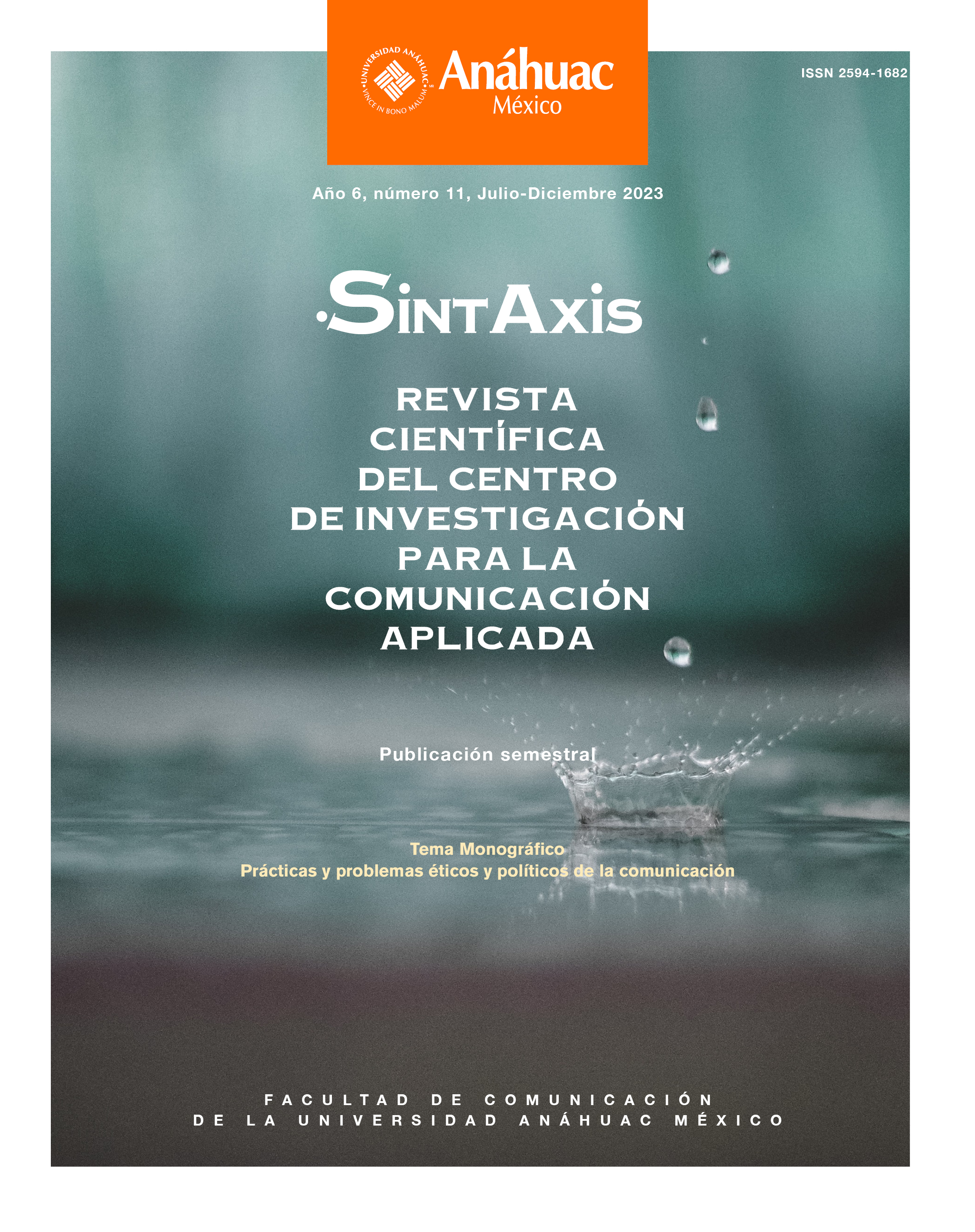Communicologist´s perception regarding soft skills and their work trajectory
Main Article Content
Abstract
Mixed sequential, exploratory-descriptive study, conducted initially during 2012-2015 and second in 2020-2022. Results of the second moment are presented. The objective was to know the opinion of graduates of communication sciences about the soft skills they developed during their student stage and those that have been transcendent in their career. The perspective of Leyva, Espejel, Cavazos, Arroyo, Robles and Sánchez are used as a theoretical basis, from which the analysis constructs are built. The sample was mixed multilevel and was composed of graduates of the degree in communication sciences. The results reveal the opinions about the soft skills developed during the student stage through different subjects as well as those that have been most transcendent in their professional career. It ends with the consideration about the relevance of developing soft skills in the academic activities and extra-classroom of the degrees in communication sciences.
Downloads
PLUMX Metrics
Article Details

This work is licensed under a Creative Commons Attribution-NonCommercial-NoDerivatives 4.0 International License.
The author keeps the property rights with no restriction whatsoever and guarantees the magazine the right to be the first publication of the work. The author is free to deposit the published version in any other medium, such as an institutional archive or on his own website.
References
Arroyo, R. (2017). Habilidades gerenciales: desarrollo de destrezas, competencias y actitud. Ecoe.
Chamosa, M., y Herrera, H. (2018). Brecha curricular entre las Carreras de Comunicación y la demanda laboral en México. ALCANCE Revista Cubana de Información y Comunicación. 7(15), 28-44. http://scielo.sld.cu/pdf/ralc/v7n15/ralc03118.pdf
Chau, H., Bana, S., Bouvier, B., y Frank, M. (2023). Connecting higher education to workplace activities and earnings. PLoS ONE, 17(3), 1-18. https://doi.org/10.1371/journal. pone.0282323 DOI: https://doi.org/10.1371/journal.pone.0282323
Creswell, J., y Creswell, J. (2018). Research design: qualitative, quantitative, and mixed methods approaches. SAGE.
Damián, N., y Damián, E. (2020). Las habilidades blandas y el teatro. Revista Ciencias Pedagógicas e Innovación, viii(1), 22-27. http://dx.doi.org/10.26423/rcpi.v8i1.344 DOI: https://doi.org/10.26423/rcpi.v8i1.344
Ferreira, C., Robertson, J., y Pitt, L. (2023). Business (un)usual: Critical skills for the next normal. Thunderbird International Business Review, 65(1), 39-47. https://doi.org/10.1002/tie.22276 DOI: https://doi.org/10.1002/tie.22276
García, F., Boom, E., y Molina, S. (2017). Habilidades del gerente en organizaciones del sector palmicultor en el departamento del Cesar-Colombia. Revista Científica Visión de Futuro, 21(2), 1-21. http://www.redalyc.org/articulo.oa?id=357955446001
Hernández-Sampieri, R., y Mendoza, C. (2018). Metodología de la investigación: las rutas cuantitativa, cualitativa y mixta. México: McGraw Hill Education. DOI: https://doi.org/10.17993/CcyLl.2018.15
James, R., y James, M. (2004). Teaching career and technical skills in a mini business world. Business
Education Forum, 59. National Business Education Association.
Jasim Z., Jasim A., Fadhil S., y Al-Fayyadh S. (2023) Components of Soft Skills for University
Students in the 21st Century: an overview of literature review. Med Edu Bull,
(1), 603-11. https://www.medicaleducationbulletin.ir/article_168099_d36addc44c2dd87d949c5501e8820555.pdf
Leyva-Carreras, A., Espejel-Blanco, J., y Cavazos-Arroyo, J. (2017). Habilidades gerenciales como estrategia de competitividad empresarial en las pequeñas y medianas empresas (Pymes). Perspectiva Empresarial, 4(1), 7-22. http://dx.doi.org/10.16967/rpe.v4n1a1 DOI: https://doi.org/10.16967/rpe.v4n1a1
Naafs, S., y Skelton, T. (2018). Youthful futures? Aspirations, education and employment in Asia. Children’s Geographies, 16(1), 1-14. https://doi.org/10.1080/14733285.2018.1402164 DOI: https://doi.org/10.1080/14733285.2018.1402164
Marrero, O., Mohamed, R., y Xifra, J. (2018). Habilidades blandas: necesarias para la formación integral del estudiante universitario. Revista Científica Ecociencia, 5, 1-18. https://doi.org/10.21855/ecociencia.50.144 DOI: https://doi.org/10.21855/ecociencia.50.144
Ramos-Galarza, C. (2020). Los Alcances de una investigación. CienciAmérica, 9(3), 1-6.
https://doi.org/10.33210/ca.v9i3.336 DOI: https://doi.org/10.33210/ca.v9i3.336
Robles, M. (2012). Executive Perceptions of the Top 10 Soft Skills Needed in Today’s Workplace. Business Communication Quarterly 75(4), 453-465. https://doi. org/10.1177/1080569912460400 DOI: https://doi.org/10.1177/1080569912460400
Rodrigo, M., y Estrada, A. (2011). Nuevos retos de la docencia en la formación de competencias comunicacionales. El caso de la Teoría de la Comunicación. Estudios de la Comunicación. Estrategias metodológicas y competencias profesionales en comunicación. Pearson-Universidad
de Sonora.
Sánchez-Olavarría, C. (2014). Los egresados de comunicación y el mercado laboral: un estudio de trayectorias profesionales. Revista iberoamericana de educación superior, 5(13), 40-54. http://www.scielo.org.mx/scielo.php?script=sci_arttext&pid=S2007-28722014000200003&lng=es&tlng=es DOI: https://doi.org/10.22201/iisue.20072872e.2014.13.119
Van Heerden, A., Jelodar, M., Chawynski, G., y Ellison, S. (2023). A Study of the Soft Skills Possessed and Required in the Construction Sector. Buildings, 13, 522. https://doi.org/10.3390/buildings13020522 DOI: https://doi.org/10.3390/buildings13020522

